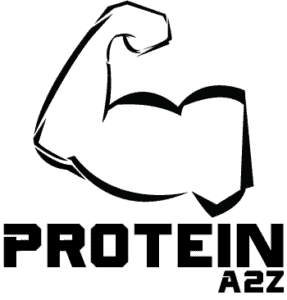Almost all professional athletes and fit gym-goers have an affinity for protein powder. It has become so commonly used and regarded as a necessary part of our healthy lives, that we often forget it is not real food, but rather a supplement.
Protein powder can have negative effects when used excessively, including headaches, nausea, skin problems and unintentional weight gain. In extreme cases, it can lead to kidney failure or cardiovascular disease. It can also cause gas, stomach cramps and diarrhea in lactose intolerant users.
Table of Contents
What are the main disadvantages of protein powder?
When consumed excessively (if above 30% of your calorie intake comes from protein), it may cause problems like nausea, headaches, dermatological issues and ultimately unwanted weight gain. It can also lead to cardiovascular diseases as well as kidney failure, regardless of whether the protein was drunk in the form of a shake or consumed through food sources.
Moreover, some people that are lactose intolerant have problems digesting whey protein, as it contains lactose since it is extracted mainly from cow’s milk. Gastronomical discomfort is more than likely among such individuals. They should refrain from using milk-based proteins (whey) and choose another type.
How do you know if you are consuming too much protein?
Usually, a grown person can consume 2 grams of protein per each kilogram (or 0.9 grams per pound) of body weight and be okay in the long run, as long as they do not exceed the 30 – 35 % mark of getting their calories from protein sources.
A sign that you are consuming too much protein is when the skin on your face, back, shoulders or arms starts forming pimples. Of course, the reason could be from something else like allergies or seasonality. But if everything else remains the same, then higher protein intake could be to blame.
Another sign of high protein consumption is constipation and having difficulties using the restroom.
Is protein powder safe to use in moderate quantities?
Yes. Good quality protein powders are safe to use for a long period of time. Between one and three scoops of protein per day is a normal dosage, depending on your overall daily calorie intake goal.
If you’re an active athlete, more than three protein shakes per day can cause harm to your liver, kidneys, digestion, and cardiovascular system. So, proceed with caution and measure the protein powder you consume. If you are leading a sedentary life, consuming protein powder is highly unnecessary and not recommended.
- More about if you really need protein powder
- This is the best way to drink protein powder
- Is it ok to drink protein powder with hot milk
More about how much protein to get
What are the signs that you are not getting enough protein?
For your body to function properly, you need to get at least 10 % of your daily calorie intake from protein. This is the bare minimum. It is recommended that you get at least this amount from a variety of food sources.
Common signs for not consuming enough protein are: swelling(edema) in abdomen, legs, feet or hands. You may also have sudden mood swings and hair, skin and nail problems, as well as hunger and slow healing of wounds.
What happens if you don’t consume enough protein?
If you are not consuming enough protein in your diet, you won’t be able to build muscle consistently, or avoid muscle cramping and fatigue. Overall, your bodily functions will take longer to recover from stress such as walking for longer periods, sprinting or weight lifting. Regardless of being an athlete or not, your body needs protein to function properly.
How long does it take to digest protein?
Protein usually takes up to 5 complete hours to digest in your system. For that same reason it is not recommended to have protein exclusively in a single meal, but rather spread your protein intake throughout the day in separate types of food.

User comment about getting the right amount of protein
How I Get Enough Protein
Everyone knows that eating the right kind of protein in the right quantity will help you to keep fit and look good, but there is no one ‘how’ to eat enough protein in the body to build muscle and develop an overall well-being.
Your diet should be high in protein, as this will aid you in your fitness goals. When it comes to proteins, there are many different forms and some contain other nutrients such as carbohydrates, fat, vitamins and minerals. Your nutritionist should have the knowledge to help you decide what is best for you to consume.
I love protein bars
You can find a number of protein bars that can be purchased at the grocery store or specialty store, which offer a variety of these protein bars to choose from. These bars will generally consist of low or high protein bars that are formulated to meet the needs of the consumer.
They may include one or more types of protein, which will vary depending on which type of protein you choose. Some of the most common foods that contain this type of protein include eggs, soy milk, cheese, beef, chicken, nuts, tofu and nuts, among others.
Meal planning is a good idea in many cases
You may also want to consider making a meal plan for the week that includes all natural sources of protein. Protein shakes are an easy way to get in the required amount of protein throughout the day and this may be the most common way that people take in protein.
You may want to consider drinking water instead of coffee because caffeine has been found to help the body produce insulin to increase the amount of protein the body absorbs. The protein shake is usually flavored and consists of a variety of different sources of protein.
It is also mixed with juice and milk so that you can drink it with any beverage that you would like to make the process go a little smoother. Protein is essential and needs to be ingested in plenty to assist in muscle development, and this is why you need to consult your physician before you take any type of protein supplement.

